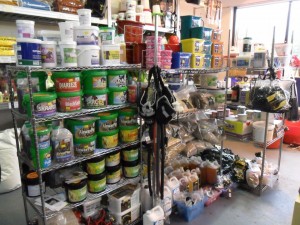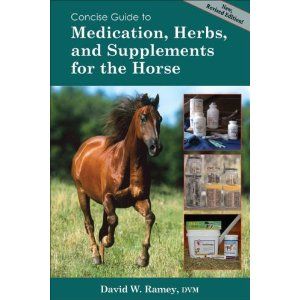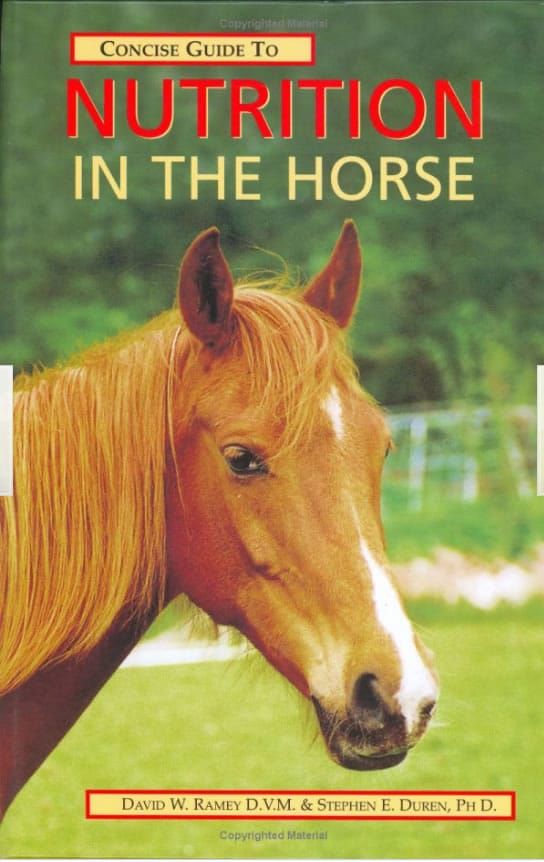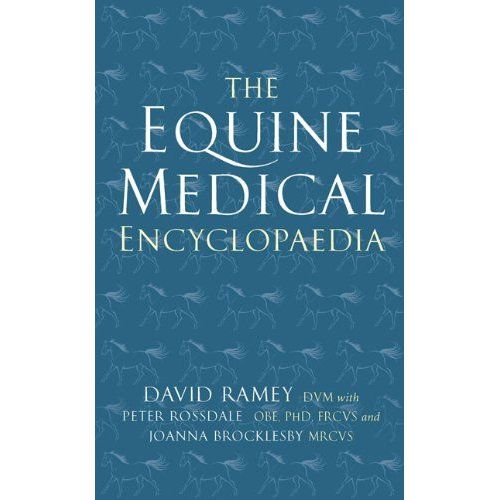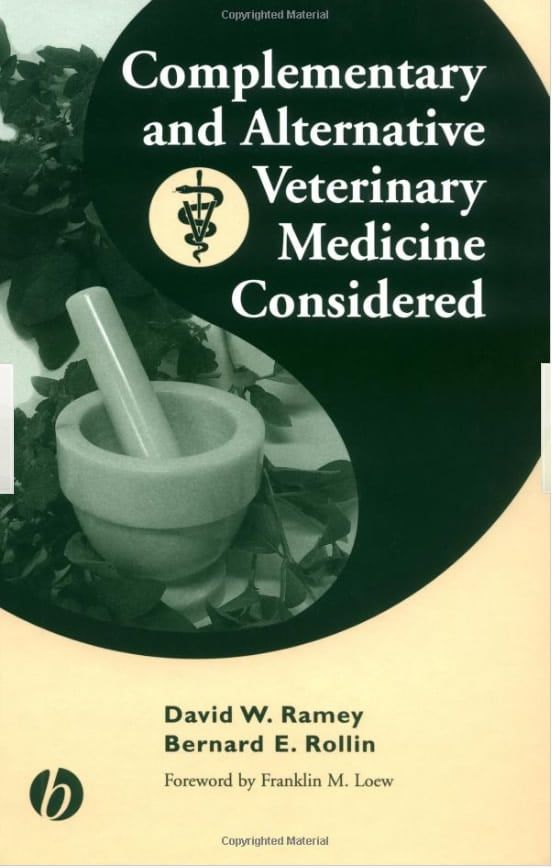By definition, a supplement is something that is provided to complete something, to make up for a deficiency or to extend or strengthen the whole. As such, a whole generation of horse owners has been sold on the idea that various supplements are needed to the horse’s diet purport to do most or all of these things (and many others). Nothing could be further from the truth.
Almost without question, the most common deficiency seen in the horse is a lack of adequate calories in the diet. Calories supply the chemical energy needed for the horse to run his body. Horses are often not given enough feed for the work that is required of them. Work such as exercise, lactation or growth requires a lot of calories. As such, horses that work hard may need more feed than what is routinely given to them, but when talking about “supplements” most people aren’t thinking of calories.
Still, if horses are calorie-deficient – lacking in enough fuel to run their bodies – they lose weight, are in poor condition and may not feel energetic. However, these problems are not helped by any amount of supplemental vitamins or minerals.
People being people, however, generally overlook a lack of feed as a cause of a lack of energy and weight loss in their horse. Finding out that your horse is losing weight because he’s not getting enough to eat is sort of like finding out that your washing machine doesn’t work because you forgot to plug it in. You’re happy to find out what the problem is, but it’s kind of embarrassing and you’d really rather it be something else. With horses, this generally means that horse owners first start looking to areas other than the feed as potential causes of their horse’s weight loss or lack of energy.
In fact, horses are rarely deficient in anything besides energy. (There are some exceptions, for example, certain parts of the United States have soil that is deficient in the trace mineral selenium, and horses in these areas may benefit from selenium supplementation.) It is very difficult to create a diet of normal horse feed that supplies enough calories for their systems to run but that is also deficient in protein, vitamins and minerals. Vitamins, minerals and protein all have important functions in the horse. However, providing more of any of these substances than what is needed for a particular function will not cause the horse to do that function better. Nor are vitamins and minerals necessarily benign. In fact, toxicities of vitamins and minerals have been reported in the horse (though rarely).
There is, of course, no way to measure a horse’s energy levels. But there is a big difference between the energy supplied by feed, and “feeling energetic.” It’s this latter concept that horse owners fret over, and there are many products – mostly vitamins and minerals – to assist horse owners with their fretting. In fact, any sort of effect on “energy levels” in the horse from these sorts of products is most likely to be exerted on the minds of the owners. And that’s fine, as long as you can afford it, and don’t mind contributing to the wealth of the supplement makers!
Dietary protein supplements are also commonly given to horses by their well‑meaning owners. Unquestionably, the horse needs protein to build the body’s tissues. But while they do need protein, they really don’t need very much of it. Extra dietary protein taken in by the horse is not beneficial (nor is it harmful). Nor do protein requirements in horses go up when they exercise. Excess protein is merely digested by the horse and converted to energy. In fact, protein supplements are mostly just relatively expensive sources of supplemental energy for the horse.
It is very important that you read the labels of supplements for your horse. You not only want to find out what the supplements are supposed to do, you want to find out what is in the supplements that is supposed to cause the beneficial effects. Some over‑the‑counter medications and supplements do not even carry a listing of ingredients! It seems, at best, foolish to use a product on your horse that will not reveal its ingredients. After all, your horse is relying on you to take care of him. If products don’t care enough to tell you what you are giving to your horse, why should you care to use them?
Still, the bottom line is that most horses simply don’t need any supplements at all in their diet. Assuming that they’re getting enough feed to maintain a healthy weight, they’re also probably getting enough of everything else. You’re generally much better off spending a bit extra on good quality feed than you are spending money on any supplement.

